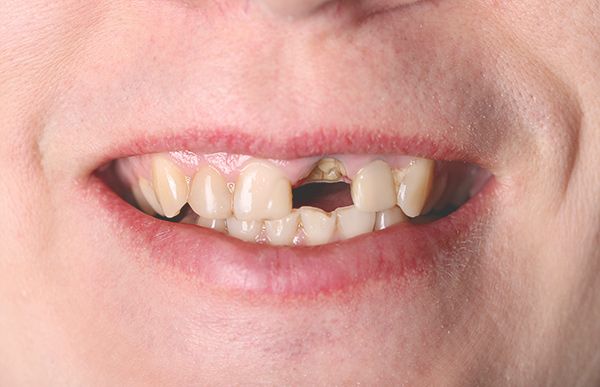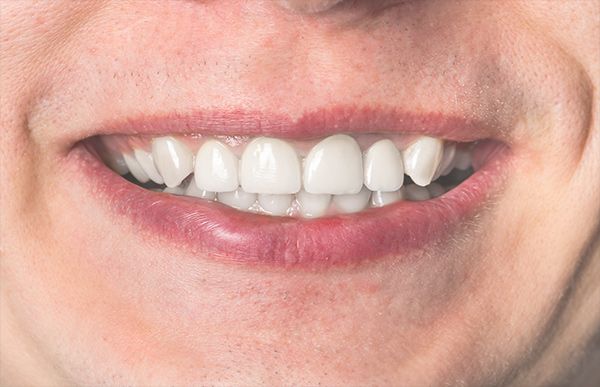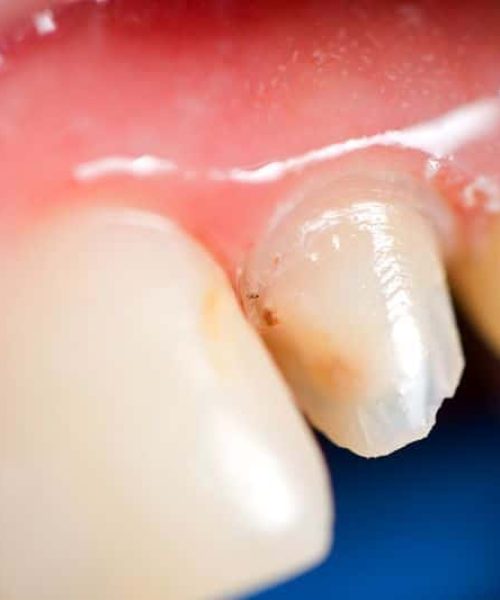Emergency Dentistry
Emergency Dentistry: We're Always a Phone Call Away
The doctors at Iroquois Dentistry are available 24/7 for emergency dentistry visits. In fact, at least two doctors are on call and nearby at all times. Whether you have a chipped tooth, a broken tooth, or are experiencing severe pain, an emergency dentist can provide the necessary care.
Overview
A sudden dental injury can affect your appearance, comfort, and overall oral health. Fortunately, emergency dental care not only restores your smile but also helps reduce pain and anxiety.
Additionally, it can prevent the need for unnecessary ER visits, offering a more efficient solution.
The emergency dentists at Iroquois Dentistry in Nashville, TN, can resolve your dental emergency, often the same day…

The Importance of Prompt Attention
A knocked-out or broken tooth, severe gum or cheek damage, or intense dental pain requires immediate treatment. Call Iroquois Dentistry at (615) 298-2040 for fast care.
Our skilled dentists use advanced tools like laser dentistry and CEREC® scanners and software to restore your smile in one visit, helping prevent further damage and costly treatments.
Untreated dental issues can lead to infections and further damage, increasing treatment costs, dentist visits, and recovery time.
We Prioritize Your Comfort
Dental emergencies are often incredibly painful; however, we offer sedation to help relieve the pain and keep you comfortable throughout your visit. This ensures that you receive the necessary care while minimizing discomfort.
What to Do When Dental Emergencies Occur
If you have ongoing pain, like a severe toothache, seek emergency dental care right away. In the meantime, these tips can help keep you calm and comfortable until your visit:
Knocked-Out Tooth
If one or more of your teeth are knocked out due to an injury, you must act quickly to give our dentists the best chance of re-implanting it. First, avoid touching the tooth's roots and keep it moist by placing it in a baggie or container with milk or saliva. If possible, you can also try to put it back in place until you arrive at our state-of-the-art Nashville, TN, dental office.
Broken Teeth
Although minor chips or cracks can be easily concealed by our dentists with dental bonding or porcelain veneers at your next appointment, more importantly, serious breaks need immediate attention from an emergency dentist. In the meantime, to minimize pain on your way to our Nashville practice, rinse with warm water, apply an ice pack or take pain medication, and if necessary, use gauze or a wet tea bag to stop and absorb bleeding.
Cracked Teeth
You need to see an emergency dentist especially if you crack a tooth. After all, this injury is difficult to assess on your own since the tooth may look intact but hurt under pressure or feel extremely sensitive when you drink something hot or cold. Moreover, consistent tooth pain may also mean nerve damage has occurred or a nerve ending is exposed. Therefore, timely dental care can restore the tooth and protect your overall oral health.
Soft Tissue Injury
Due to the many blood vessels in your mouth, injuries to your tongue, lips, or cheeks usually heal quickly. If trauma occurs to the inside of the mouth, rinse with salt water or hydrogen peroxide to clear the blood and assess the injury. Next, apply pressure with a clean cloth, cold compress, or ice to control bleeding. Finally, seek care from our emergency dentists if bleeding is severe, the cut is deep, or there’s a puncture through your lips.


Before — A knocked-out tooth creates a gap, which can not only impact dental function but also disrupt your ability to bite and chew properly. Consequently, this can affect your overall oral health and comfort.
After — A restored smile can significantly protect both your appearance and overall health. Moreover, it helps maintain your confidence and ensures proper dental function.
Was One of Your Teeth Knocked Out?
WE CAN RESTORE YOUR HEALTH & CONFIDENCE
Schedule an Emergency or Non-Urgent Appointment
CHOOSE FROM THREE SIMPLE OPTIONS
Call Our Practice
The quickest way to reach us is by phone. By doing so, we can better understand your situation and promptly advise you on the next steps to take.
Email Our Office
Messaging us is an effective way to get answers to your questions, such as whether you require prompt care. In addition, it allows us to respond quickly and provide you with the information you need.
Request a Consultation
If you have a specific date and time in mind for your visit, you can easily fill out our online consultation form. This allows us to schedule your appointment efficiently and ensure we accommodate your preferred time.
Broken Teeth Are Another Common Injury
This injury can expose nerve endings, making the tooth sensitive to temperature changes and allowing bacteria to penetrate the enamel, leading to infection..

A Crown Popped Out While Flossing...
IS THIS A DENTAL EMERGENCY?
While it’s usually not an emergency, if you’re in pain or unsure, contact our office online or at (615) 298-2040. We’ll assess the seriousness of the injury and provide recommendations. Prompt treatment for dental injuries or damage to restorations, like crowns or bridges, helps prevent further damage.
Other non-urgent dental issues include:
- Lost or Damaged Dental Fillings
- A Chipped Tooth
- Cracked Dentures
- Minor Dental Sensitivity or Toothache
When Should I Go to the Hospital?
Extremely serious dental emergencies should be treated in a hospital emergency room. We may need to see you at our Nashville office in the following days in order to provide follow-up treatment or to examine how you are healing but if you have suffered an extremely traumatic injury to your mouth, please call 911 or have someone drive you to the nearest hospital. These emergency scenarios include:

5-Star Reviews from Our Patients That Make Us Smile
"THEY CARE FOR YOU AND YOUR FAMILY LIKE YOU ARE PART OF THEIRS."



Iroquois Dentistry
Our top-rated dentists have been serving the Nashville community since 1946. We use the latest technology to offer gentle and effective care at affordable prices, and we are members of various national and local dental organizations:
- American Dental Association
- Academy of General Dentistry
- Tennessee Dental Association
- Nashville Dental Society
To schedule a visit at Iroquois Dentistry, contact us online or call (615) 298-2040.